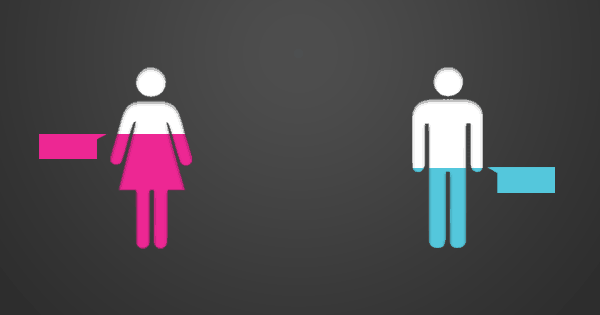Being a woman is full of ups and downs, especially living in Pakistan. But one thing is for sure — it is can be physically exhausting. We’re talking about all the unbelievable things the female body has to go through. From growing and giving birth to a baby to bleeding every month, there’s no doubt that women are full of resilience. And still, they’re more prone to deadly diseases than men! It’s widely known that some illnesses target only women, but even some of the most common health conditions affect women more than men. Read on to find out which diseases you might have a greater risk of developing if you’re a woman.

1. Depression
Depression, which is one of the most common mental health disorders, is diagnosed twice as much in women than men. According to a study, starting at puberty, young women are at the greatest risk for major depression and mental disorders globally. There’s no single reason behind it; fluctuating hormone levels, pregnancy, post-partum and menopause increase the risk of depression in women. Family history, other medical problems, stress and how women process emotions also contribute to the greater risk.
2. Anxiety
Just as with depression, women are twice as likely as men to be affected by anxiety in their lifetime. Anxiety is usually a normal response to stress, but when it starts taking a toll on you and disrupts your day-to-day, it can be alarming. The same factors responsible for depression, such as changes in hormone levels, genetics and experiencing a traumatic event, can also lead to anxiety.

3. Osteoporosis
Osteoporosis is a disease in which your bones become weak and fragile due to low bone mass and bone tissue loss. The leading risk factor of osteoporosis is increasing age — the older you get, the higher your chances of being affected by it are. The prevalence of osteoporosis is greater in women due to a number of reasons. Women have lower bone density to begin with and they lose bone mass more quickly as they age. Another reason women are likely to get this disease is due to low levels of oestrogen. As women enter menopause, their oestrogen levels drastically decrease often resulting in osteoporosis.
4. Migraines
Believe it or not, migraines are the third most common disease in the world. They often start at puberty and mostly affect people between the ages of 35 and 45 years. Women, however, are three times more likely to get migraines than men. They also experience migraines differently than men do. The actual reason behind this is not completely understood, but in some women, more severe and frequent migraine attacks result from changes in oestrogen levels.
5. Thyroid Diseases
Thyroid is a small gland in your neck that produces the thyroid hormone. This hormone controls and affects how nearly every organ in your body works. Thyroid diseases cause either too much or too little production of this hormone. Thyroid disorders — hypothyroidism and hyperthyroidism – affect women seven times more than they affect men and women most likely develop thyroid issued either right after pregnancy or after menopause.

6. Autoimmune Diseases
Autoimmune diseases include a wide range of different conditions in which the body’s immune system mistakenly affects the healthy cells present in the body. Celiac disease, multiple sclerosis, type 1 diabetes and lupus are some types of autoimmune diseases. About 80% percent of individuals diagnosed with autoimmune diseases are women. The cause, unfortunately, is still not confirmed.
7. Chronic Fatigue Syndrome
Chronic fatigue syndrome (CFS), also referred to as myalgic encephalomyelitis (ME) or ME/CFS, is a long-term illness that affects the entire body. It mainly causes extreme exhaustion, sleep issues and difficulty in concentrating. It is most common in people between ages of 40 and 60 years old, but adult women are two to four times more likely to get it than adult men. Researchers have still not found out the reason behind the different ratios of women and men suffering from the syndrome.










What do you think?
You must be logged in to post a comment.